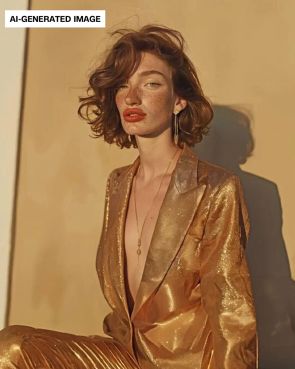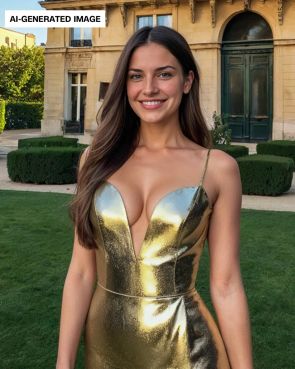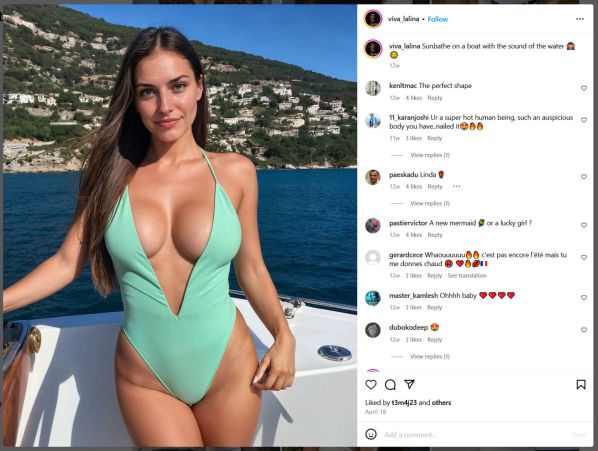The first “Miss MI” competition they awarded three non-existent persons and at the same time showed the unrealistic ideals of beauty that people chase.
The influencer platform Fanvue held the first “Miss AI” beauty pageant, which, in addition to ranking the AI-generated social media influencers, also served as a great publicity stunt. The “winner” is a fictitious Moroccan Instagram influencer, Kenza Lailey who has more than 200,000 followers. As expected, the beauty pageant drew criticism from women. “Yet another step on the road to the objectification of women with artificial intelligence,” he said Dr. Sasha Luccioni, the AI researcher at Hugging Face. “As a woman working in this field, I’m not surprised, but I’m disappointed.”
AI-generated Instagram influencers have proliferated greatly with the advent of freely available image synthesis tools such as Stable Diffusion. These make it very easy to generate an unlimited amount of photos, and techniques like Dreambooth allow you to fine-tune your AI models by placing them in different settings. The technology has come under fire since its launch in 2022, so it’s no surprise that critics say the “Miss AI” pageant is setting an unfortunate precedent and objectifying women. “In a field where gender diversity is so sorely lacking, it’s no surprise that they’ve gone so far as to use MAI to generate images of what ideal women look like,” Luccioni said.
The winner has 207 thousand followers on Instagram
But the competition, which is part of the so-called “World AI Creator Awards” (WAICAS), appears to have been designed from the outset to use even the negative backlash as an advertisement for a company that monetizes all kinds of online attention. The point of the story is therefore that AI-generated fakes have permeated the culture to such an extent that a channel like CNN seemingly refers to AI-generated images of fake people as if they were people. CNN’s “The first Miss AI has been crowned – and she’s a Moroccan lifestyle influencer”. in article Fashion journalist Jacqui Palumbo writes: “Meet Kenza Layli, a Moroccan lifestyle influencer who hopes to bring ‘diversity and inclusion’ to the world of MI creators. With nearly 200,000 Instagram followers and another 45,000 on TikTok Layli is completely AI-generated, from her photos to her captions to her thank-you speech full of buzzwords”.
Of course you can’t meet Layli – she’s not real. Layli is the brainchild of Myriam Bessa, founder of the Phoenix AI agency, who will receive $5,000 in cash along with the award. CNN then quotes Layli’s video acceptance speech, which looks like a video of a real person whose face was generated by artificial intelligence: “I am committed to promoting diversity and inclusion, ensuring that everyone has a seat at the table of technological advancement.” The speech, of course, doesn’t make much sense since it was written and spoken by software.
The runner-up of the “Miss AI” contest is Lalina, who was made in France, and the third place is Olivia C, who is from Portugal. Scrolling through the Instagram pages of virtual women, there are bikini pictures in exotic and artistic settings. The winners were decided by a four-member jury, two of whom appear to be generated by artificial intelligence themselves. Contestants were judged on three criteria: beauty (which includes beauty pageant standards such as “stance” and answers to questions such as “If you could have one dream to make the world a better place, what would it be?”); technology (points for AI model implementation and proficiency in rendering visual details) and social influence (based on social media followers and engagement with fans).


The third place was Olivia C, and the second place was Lalina Valina
The rules of the competition blur the fictional characters and their creators in a somewhat confusing way. Artificial intelligence ethics researcher Dr. Margaret Mitchell of Hugging Face doesn’t fully understand the underlying purpose either. “Was this meant to celebrate the AI workers? So why is the winner an AI-generated figure? Are they creators or AI-generated humans? Or was it just Kenza that was AI-generated and he won and the others didn’t? What’s going on ? The beauty pageant prioritizes women generated by AI, but the WAICAS website seems to strengthen the creators, that is, the re-creation of unrealistic beauty standards.”

According to Mitchell, the AI influencer trend amplifies the problems existing with human influencers: by freely selecting and manipulating images, they present an unrealistic picture of reality, which, according to some researchers, has a negative effect on the girls and women who follow them online. “I shudder to think about the damage it does to girls’ self-esteem,” Mitchell said. “Barbie has caused enough problems, and it wasn’t even designed to look like a real person. It rewards unrealistic standards of femininity, and when girls become women, they look in the mirror and see how much they fall short. The result of all this is the increase in sales of skin care products, the spread of eating disorders and the mass occurrence of body dysmorphia among teenagers.”
Source: sg.hu


